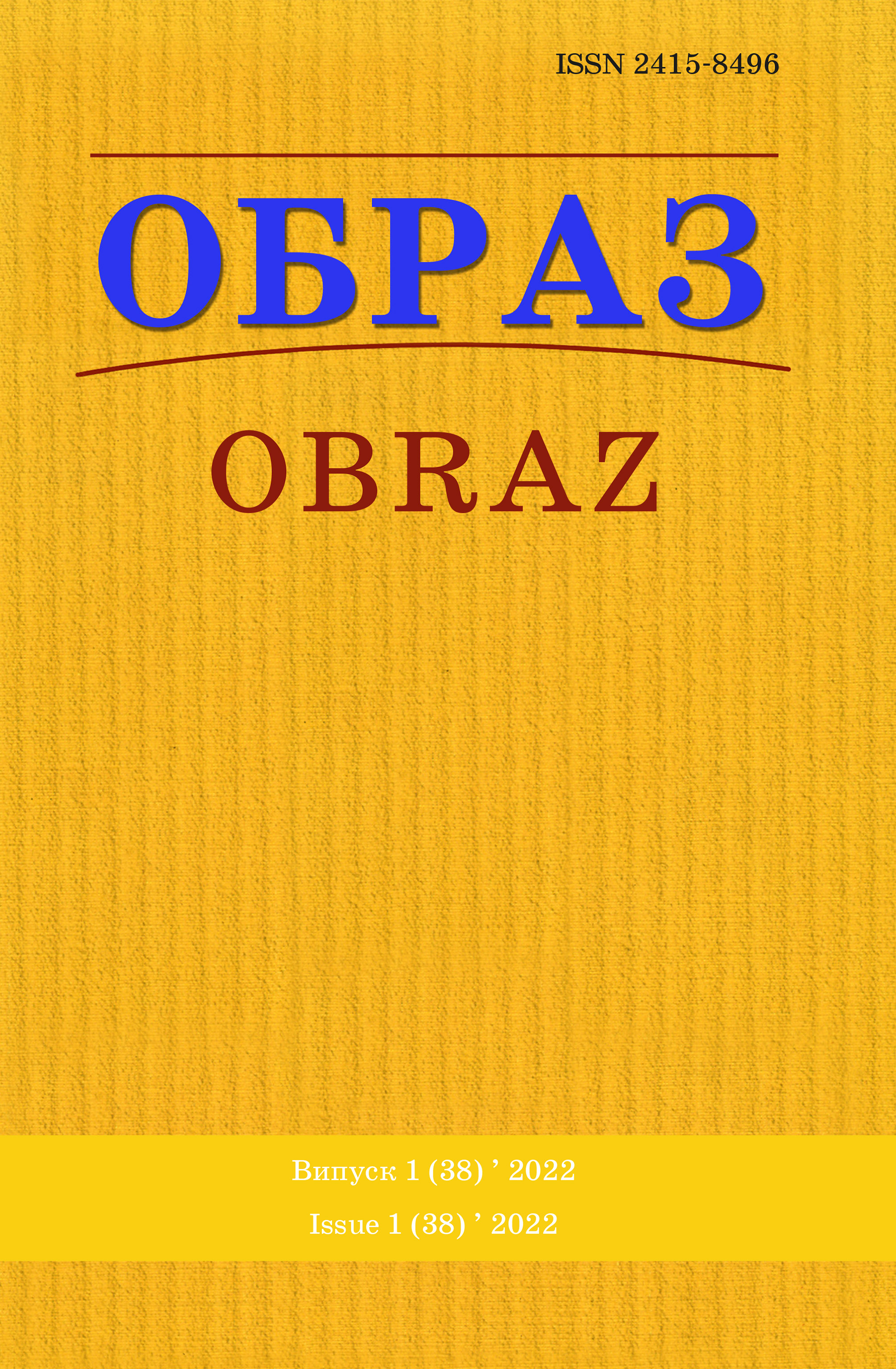Анотація
На українському телебаченні реаліті-шоу з кожним роком займають все більше ефірного часу та завойовують лояльність глядачів. Залучаючи до зйомок «реальних людей», телеканали використовують для просування свого продукту стереотипи та упередження, з якими живуть головні герої та з якими може співвіднести себе глядач. Специфіка реаліті-шоу «Супермама» полягає в залученні до зйомок не тільки головних героїнь, але і їхніх дітей. Зважаючи на те що діти – вразлива група, яка не може ухвалювати рішення самостійно, це може призвести до порушень їх прав та травматизації і під час знімання, і після виходу програми у світ. Проаналізувавши 4 сезони програми, можемо констатувати, що порушення роботи з дітьми відбуваються неодноразово, тому пропонуємо рішення як превентивні, так і на етапі постпродакшену.
Посилання
1. Zhukov, V. (2020), «Cultural consequences of the influence of «reality show» on the mass consciousness: the formative aspect», Colloquium-Journal. Cultural Science, no. 6 (58), pp. 12–21.
2. Hrabarchuk, O.M. (2018), «Reality show: inside the image», The Culturology Ideas, no. 14, pp. 87–93.
3. Novykova, A.A. (2008), «Games of modern television as a socio-cultural phenomenon», Observatoryya Kultury [Observatory of Culture], no. 1, pp. 41–47.
4. Levytskaya, A. (2013), «Reality shows as lifestyle advertising: media educational aspects», Rossyyskyy Zhurnal Istoryy, Teoryy y Praktyky Medyapedahohyky. Praktyka Mediaobrazovanyya [Russian Journal of History, Theory and Practice of Media Pedagogy. The Practice of Media Education], no. 4, available at: https://cyberleninka.ru/article/n/realiti-shou-kak-reklamaobraza-zhizni-mediaobrazovatelnye-aspekty/viewer (accessed 11 November 2021).
5. Kotlyar, S. & Harkusha, N. (2019), «Trends and principles of influence of entertaining content on the Ukrainian spectator», Visnyk Kyyivskoho Natsionalnoho Universytetu Kultury i Mystetstva. Seriya: Audiovizualne Mystetstvo i Vyrobnytstvo [Bulletin of the Kyiv National University of Culture and Arts. Series: Audiovisual Art and Production], iss. 2 (1), pp. 84–91.
6. Urazova, S.L. (2011), Reality Shows: Features and Principles of Modeling, FHOU DPO «IPk rabotnikow TV i RV, Moscow, 240 p.
7. Detektor media, «Whose premiere of «Dancing» and «The Bachelor» in September?», available at: https://www.osce.org/files/f/documents/0/2/175056.pdf (accessed 09 November 2021).
8. STB, «Supermama. About the project», available at: https://www.stb.ua/supermama/ua/ (accessed 09 November 2021).
9. robota.ua, «Reality show scriptwriter Maria Kuzmenok: «Everything that happens on the screen should resemble a cardiogram», available at: https://thepoint.rabota.ua/stsenarist-realitishou-mariya-kuzmenok-vse-chto-proishodit-na-ekrane-dolzhno-napominat-kardiogrammu/ (accessed 11 November 2021).
10. Civil Code of Ukraine, available at: https://zakon.rada.gov.ua/laws/show/435-15#Text (accessed 13 November 2021).
11. STB, «Dmytro Karpachov», available at: https://www.stb.ua/ua/host/dmitrij-karpachev/ (accessed 12 November 2021).
12. Bloh Dmytryya Karpacheva, «Dmytryy Karpachev», available at: https://blog.karpachoff. com/about?_ga=2.176357479.370911001.1636572439-1084335894.1636572439# (accessed 12 November 2021).
13. Article 126-1. Domestic Violence. Criminal Codex of Ukraine, available at: https://kku. com.ua/st-126-1 (accessed 13 November 2021).
14. HO «Telekrytyka“ (2016), Children in the Media: How to Cover and Follow the Rules. Special Report, Kyiv, 48 p.
15. Youtube (2020), «Single mom Alena can’t handle her son – Supermama 2020 – Issue 17», available at: https://youtu.be/FQ3iJ1arpRs (accessed 08 November 2021).
16. Youtube (2020), «The luxury life of Alena Laurent - the merit of the dark forces – Supermama 2020 – Issue 26», available at: https://youtu.be/XtJRN8VDpRE (accessed 08 November 2021).
17. Youtube (2020), «Insta mom Nastya got a baby for a selfie? – Supermama 2020 – Issue 1», available at: https://youtu.be/dC6Sjy8WX5A (accessed 08 November 2021).

Ця робота ліцензується відповідно до ліцензії Creative Commons Attribution 4.0 International License.

